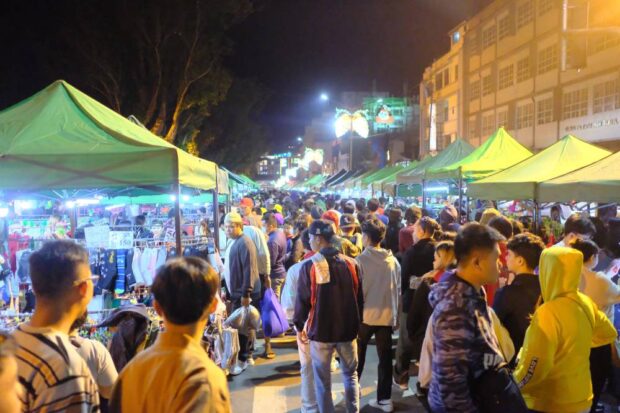Baguio eyes ‘safe water’ code amid gastroenteritis outbreak
BAGUIO CITY, Benguet, Philippines — The city council here is drawing up a “safe water” ordinance to better manage the production and distribution of drinking water in light of the gastroenteritis outbreak that is still plaguing the summer capital.
Councilor Betty Lourdes Tabanda, a lawyer and chair of the committee on health and environment, said ordinances that regulate water need updating, including the city’s Water Code (Ordinance No. 13), which put up a local committee that monitors the quality of drinking water and a task force that oversees how water services heed the standards for potable water.
Tabanda discussed the proposed safe water law during the council’s session on Monday, which tackled the outbreak that was declared on Jan. 10 by Mayor Benjamin Magalong.
The mayor acted on recommendations made by government doctors following the unusual surge of diarrhea and acute gastroenteritis (the inflammation of the digestive tract) in the first days of January, said Dr. Celia Flor Brillantes, city health officer.
Self-reporting
These ailments are water-borne diseases often triggered by contaminated water or food preparations with poor hygiene, Brillantes said.
Article continues after this advertisementCases peaked on Jan. 8 and Jan. 9, when patient numbers rose to 500, but hospitals and clinics have since reported a decline.
Article continues after this advertisementWhen the city opened a health portal last week to allow people to “self-report” their conditions, the number of suspected patients shot up to over 3,000.
On Sunday, only three cases were recorded by the city health services office, indicating that the outbreak has been contained, if not completely over, Brillantes said during the Monday session.
Tests conducted by the Research Institute for Tropical Medicine on 10 stool samples from Baguio patients discovered the presence of the norovirus and the sapovirus that trigger stomach flu, she revealed.
She said deep wells operated by the Baguio Water District, which serve downtown Baguio, have been cleared by laboratory tests for coliform or e-coli (fecal matter). But test results that were released on Jan. 12 showed coliform was found in water from some delivery services, four restaurants, a school and a household water dispenser.
Lawyer Nellie Olairez, president of the Baguio Association of Purified and Mineral Water Refillers Inc., urged the council to consider requiring all water-refilling enterprises to become mandatory members of her group for better self-policing.
She also asked for new regulations that would heavily penalize water services that operate without licenses.
